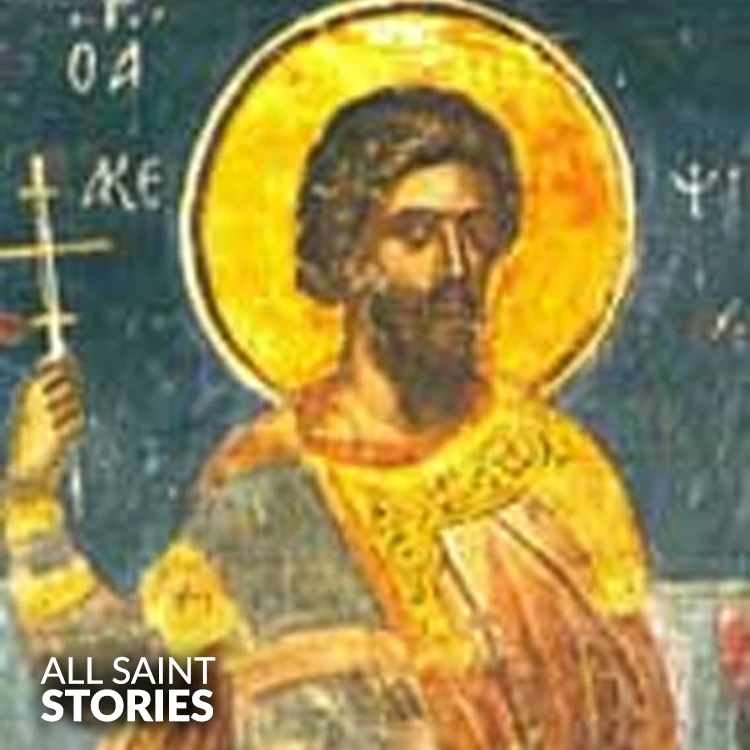"O Saint Acepsimas, faithful servant of Christ, Who endured suffering with courage and steadfastness, Intercede for us, that we may walk in the path of righteousness. Guide us in times of trial, strengthen our faith, And help us to bear witness to God's love. Through your prayers, may we grow in grace and peace. Amen."
ST. ACEPSIMAS OF HNAITA
Saint Acepsimas of Hnaita was a bishop in the 4th century who lived in Paka, a region in western Persia. During his time, the Persian Empire, under the rule of Shapur II, engaged in severe persecution of Christians, aiming to suppress the growing influence of Christianity. Shapur II, following the Zoroastrian tradition, sought to force Christians to renounce their faith and worship the sun, which was considered divine in the East. Acepsimas refused to abandon his Christian beliefs, which led to his arrest along with several companions, including the priest Joseph of Wagered Katoba, who was 70 years old at the time, and the elder Aithalla of Wagered Nuhadra, who was 66.
Acepsimas and his companions were taken to Arbela (modern-day Erbil) in chains and brought before the governor. The governor, believing in the divinity of the sun, attempted to convince Acepsimas to renounce his faith. However, Acepsimas remained steadfast, expressing his astonishment that men could worship a created thing rather than the Creator Himself. His unwavering stance enraged the governor, who ordered him to be bound and laid on the ground. He was then severely scourged, his body torn and covered in blood. Despite the excruciating pain, he did not waver in his devotion to Christ. Following this brutal torture, Acepsimas was thrown into prison, where he suffered for three years.
After years of suffering in confinement, Acepsimas was finally sentenced to death. He was racked and whipped until he succumbed to his injuries on October 10, 376 AD. His companion, Joseph, was taken to Hdajab, where he endured further torture before being killed by fellow Christians who had defected under pressure. Aithalla was beaten to death at Destegerd on November 3, 377 AD. These three men were among the last martyrs of the persecution under Shapur II.
The account of their suffering and martyrdom has been preserved in historical writings, believed to be authentic records of their acts. Their sacrifice and steadfastness in the face of extreme persecution solidified their status as revered saints in multiple Christian traditions.
Saint Acepsimas and his companions are honored in different Christian traditions with separate feast days. The Roman Catholic Church commemorates their feast on April 22, the Greek Orthodox Church on November 3, and the Syriac Orthodox Church on September 2. Additionally, Aithalla is specifically honored in the Greek Orthodox Church with a separate feast on September 1. Other figures associated with this group of Persian martyrs include Bishop Abdjesus and a priest named Abdjesu.
Saint Acepsimas' legacy endures as an example of unwavering faith, resilience, and dedication to Christ despite persecution. His story continues to inspire Christians, reminding them of the cost of faith and the strength found in unwavering devotion to God.



 English
English
 Italian
Italian
 French
French
 Spanish
Spanish
 Malayalam
Malayalam
 Russian
Russian
 Korean
Korean
 Sinhala
Sinhala
 Japanese
Japanese
 Arabic
Arabic
 Portuguese
Portuguese
 Bantu
Bantu
 Greek
Greek
 German
German
 Dutch
Dutch
 Filipino
Filipino